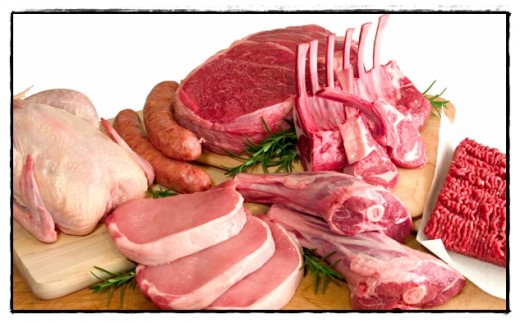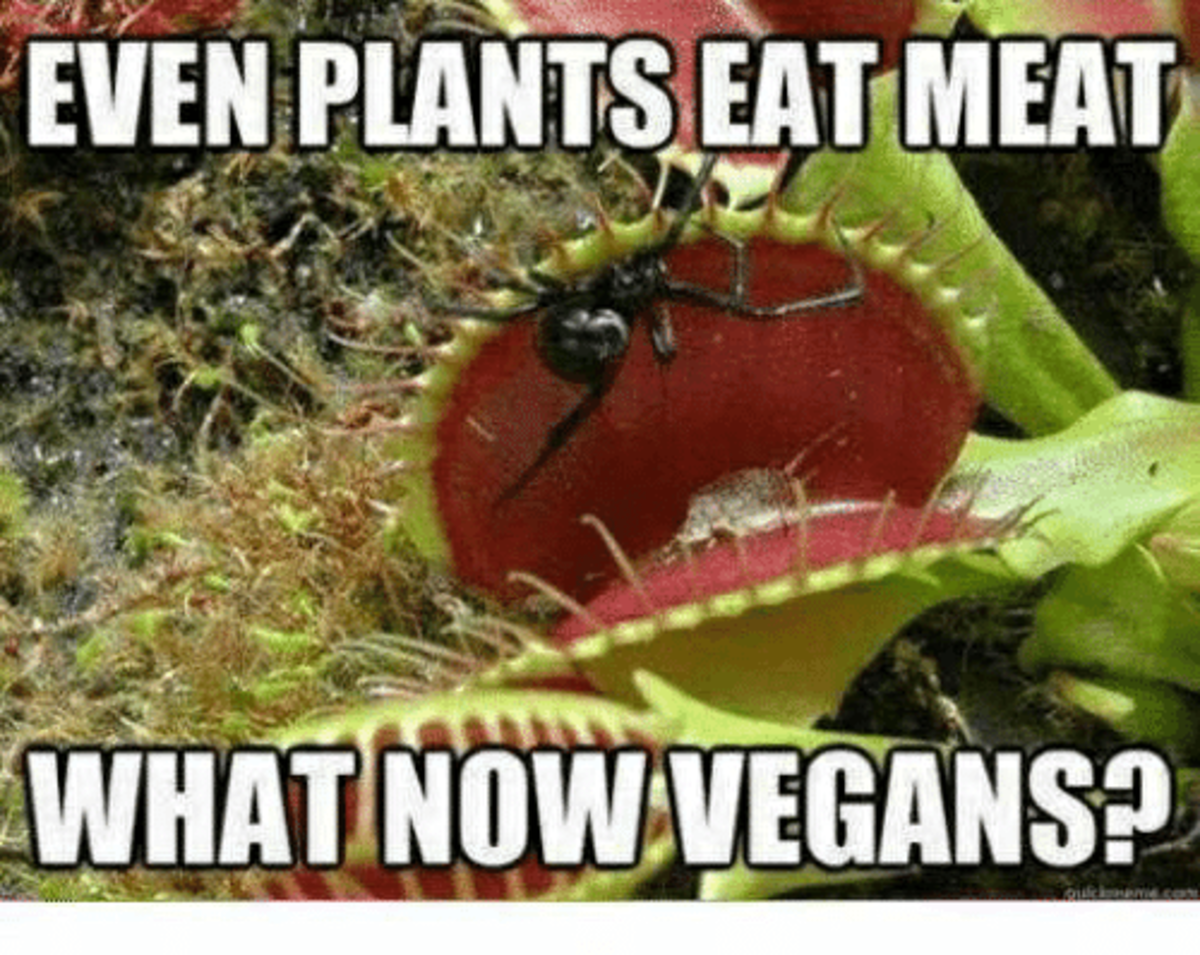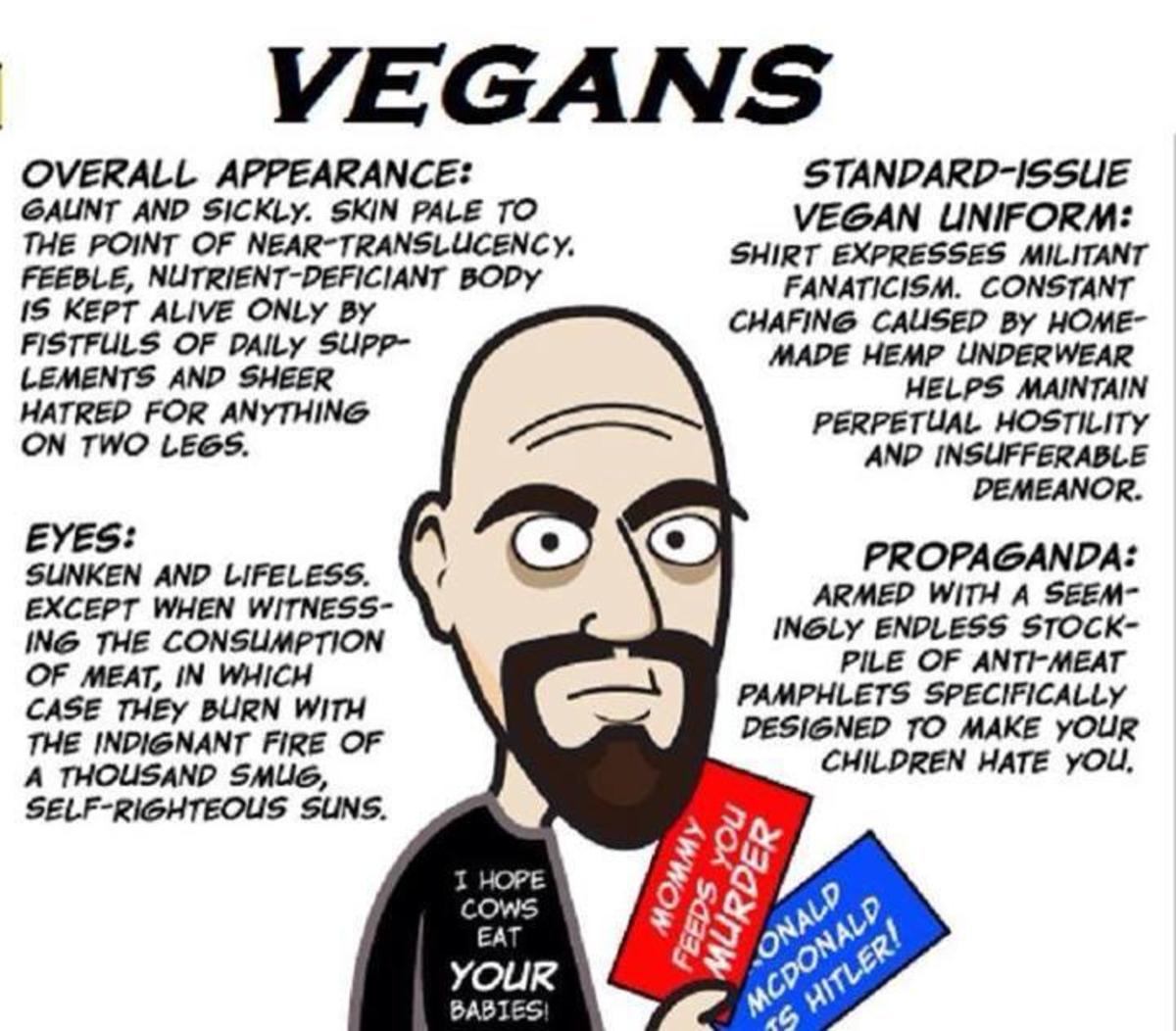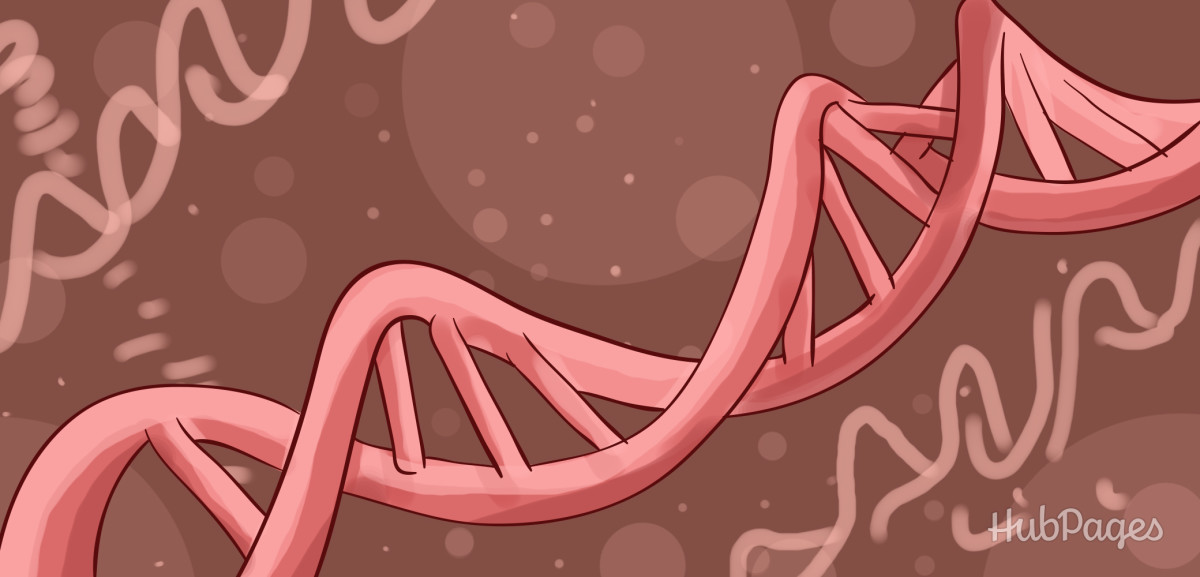Vegans Can Eat Meat! Justification for and Objections Against It
Yes! You read it right.
Veganism is not about avoiding the consumption of meat.
- That chicken you bought at the supermarket was once a living being that didn't want to die or become food for another being. Since meat cannot be obtained without the animal getting killed, vegans cannot, therefore, eat it. No animal, a pig, for example, (or a human being, for that matter) would voluntarily offer its throat to be slit open, its whole body to be grilled and roasted, its muscles and organs to be chopped into pieces so someone gets to eat.
- There is no such thing as humane or quick and painless death either. Murder is murder, abuse is abuse, violence is violence no matter how "less" or "light" it is. These non-human animals still end up killed/slaughtered for their flesh and/or skin.

Why, then, am I claiming that veganism is not about not eating meat? That is because meat is not the issue. Killing is the issue!
So, when can vegans eat meat?
- Vegans can eat meat when an animal that has lived a life in health and freedom died of natural causes like old age. But it can be a tricky situation. If the animal, though had lived a life in health and freedom, was raised for the purpose of eating it upon death, then it is not acceptable. The purpose of raising was wrong. The intention was unethical and flawed. Therefore, animals raised for this purpose is not vegan. But if the motive is the care and protection, then consumption is incidental and not relevant to ethical veganism.
- Vegans can also eat, for example, some of the remains, but not all of it, of a lion's kill. The state or condition (fresh or decaying) of the flesh is not a concern of veganism. To eat or not to eat a carrion or a decaying flesh is a matter of personal choice.
What About Roadkill?
- Roadkill is problematic. Roads themselves are non-vegan. The construction of roads had made many animals homeless. They are unfortunate instruments of disability and death to creatures that have no use or need of them. This means that a vegan cannot eat it. But if he finds one, he can choose to feed it to a carnivore or keep it off the road for other creatures to feast on.
Oppositions Towards the Concept
Many vegans oppose the concept of eating naturally dead meat due to the following reasons:
- It is unethical. Ethics always involves life -the living and our relationships with them.
If the thought or the very idea of eating a naturally dead animal (including humans, of course) disgusts us or is revolting to us, that feeling has something to do with our choice or sensibility or cultural upbringing. It has NOTHING TO DO with veganism.
Bringing health issues in consuming naturally dead animals has nothing to do with veganism. If eating a naturally dead human or non-human animal is being disrespectful to the dead, again, it has nothing to do with veganism.
When we were non-vegans, like most non-vegans today, we did not eat naturally dead animals -we only ate murdered animals- not because of a vegan reason, but because of the above-mentioned reasons: choice, sensibility, cultural upbringing.

- Using the dead is wrong because we are treating it as a thing or a commodity.
If the dead cannot be commodified, is there a time-frame after which it ceased to be dead? What about using certain parts of the dead as in hair, feathers, or bones? What about certain non-living parts of the living, for example, dung or feces? Should cow dung not be used as fertilizer because, whether we agree or not, fertilizer is one of the biggest commodities there is today? What about human beings themselves? How should we treat, for example, our hair after it is cut? Is it acceptable to commodify it, turn it into a wig, or does it need respectable treatment like burial ceremony? What about the display of fossilized artifacts in museums, isn’t it the same commodification that happens in zoos by this logic?
And of course, there always remains the issue of what should vegans do with the dead and which method of treating the dead is the vegan method. Is it burial, incineration, putrefaction, dissection, left for scavengers, etc? Surely we cannot justify any particular method ethically because the dead do not have ethics.
We also have to remember that there is more to life than just ethics. But it is certainly ethical to eat an animal that has lived a life of freedom and health and died a natural death. Respect for the dead is a cultural aspect rather than an ethical vegan aspect.

- Using the naturally dead animals is exploitation and is violence.
Violence cannot be done to the dead. So, it is illogical to claim that using naturally dead animals is violence.
The only time using dead animals becomes an exploitation is when we gather all the dead around us to sell for profit or to be used or consumed all for ourselves. The same is true with hoarding all the fruits, vegetables, living space, etc. for our own benefits alone leaving other animals that depend on them hungry and homeless. That is exploitation!
Now, someone might declare and argue, "It is okay then to rape a dead person since violence cannot be done to the dead!" First, it is not rape when one is sexually intimate with a dead person. It is necrophilia. Necrophilia is a mental disorder. And whoever engages in necrophilia must be institutionalized. Second, rape is never ethical. It is an action punishable by law.
- The dead is not a thing to be used.
What is wrong with treating things as...things? We are surrounded by things. We thrive on them. We depend on them! Don’t we respect our house, our phones, our car, our stove, our camera? Don’t we take care of them?
The dead becomes a thing, which is not a bad thing because it is no longer living. It is no longer sentient and, therefore, not capable of feeling pain and leading an independent existence. The concept of violence cannot be applied to the dead. How we treat the dead is a matter of culture and social consensus. It falls outside the bounds of ethical vegan philosophy.
Let your opinion be heard.
Vegan or not, would you eat a naturally dead animals (animals that are considered food today)?
The real issue of veganism is murder, abuse, and harm to the lives of other creatures and taking away their opportunity to live a life of freedom and independence and not about eating meat. A man may have abstained from consuming animals and animal products but it doesn't automatically mean that he is a vegan. He can still kick a cat, beat a dog, destroy a bird's nest, or support the fur and leather factory. So, if someone is an ethical vegan, he, without doubt, has understood that meat is not the issue. It is murder and violence!
Veganism is the natural outflow of the philosophy of “live and let live” and “do unto others what you want to be done unto you”. If one understands these utterly simple and ancient concepts, the rest follows. No muddle, no confusion, no rage or rant --just the pure wisdom of love and concern for all our fellow beings.
Therefore, the core theme of ethical veganism is non-violence towards our fellow humans and sentient non-human beings and the acknowledgment of their freedom to lead fulfilling lives.
And just because a naturally dead animal can be eaten, it doesn’t mean we need to. But if we have a problem with other people eating it, then again, it has nothing to do with veganism or being unethical.
Further readings:
For more understanding on the issue, James McWilliams, a professor of history at Texas State University, wrote a four-part series on the philosophical defenses of eating animals. Here's the link to the first-part: Can Eating Meat Be Ethical? You can find the rest of the articles on the page.








